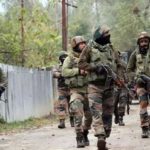The NCC is one of the most respected organisations in our country. In this blog, we are going to know the importance of this organisation in India. The National Cadet Corps was established in India by the National Cadet Corps Act of 1948. It is called a tri-service organisation as it includes the army, navy, and air force.
Notably, the NCC is a voluntary organisation that includes cadets from high schools, colleges, and universities. Cadets are given basic military training with small arms and parades. Once the training is completed, there will be no responsibilities regarding active military service between cadets and officers.
The motto of the NCC is unity and discipline. It is headquartered in New Delhi, which has 13 lakh super cadets. The NCC’s goals are to instil in young citizens discipline, personality, camaraderie, a sense of adventure, and the principles of selfless service. Not only that, but it also attempts to build leadership characteristics in young people so that they can serve the country no matter what career path they pursue. It also encourages young people to join the military forces.
The NCC is led by the Director General, who is a Lieutnant General in the Army. The DG is supported by two additional directors general, one an Army Major General and the other a Navy Rear Admiral or an Air Vice Marshal from the Air Force. The Director General’s staff is made up of members of the Army, Navy, and Air Force. There are 17 directorates headquartered in state capitals, each led by a major general from one of the three services. Directorates have up to 14 Group Headquarters under them, depending on the size of the state and the expansion of NCC in the state, through which they exercise command and control of the organisation in the state. Each group is led by a Brigadier or similar officer designated as the Group Commander. Each NCC Group Headquarters commands 5–7 battalions (Bns) led by a Colonel/Lieutenant Colonel or equivalent. Each unit is made up of companies that are led by an Associate NCC Officer (ANO) with a rank ranging from lieutenant to major.
Ranks in Senior Division NCC
Cadet Senior Under Officer
Cadet Under Officer
Equivalent Ranks in Senior Division NCC
Training In NCC
Now let’s talk about the training at NCC. The total training term for SD and SW is three years in NCC, with a one-year extension allowed, while the training period for JD and JW is two years. During the training term, each cadet in the senior or junior division must participate in service training for at least 4 hours each week.
However, no training is provided when the college or institution in which a cadet is registered is closed for a holiday. Every cadet in the Senior and Junior Division must complete service training for a minimum of 75 percent of the total hours during the annual college and school term.Every cadet undergoes a 9–10-day yearly training camp known as the National Combined Annual Training Camp. The length of time for SD/SW is generally up to 30 days. Cadets get a certificate of completion at the end of their camp training.
NCC Types Of Certifications
If we talk about certification, there are 3 types of certifications in NCC.
Certificate – A: It is available to NCC JD/JW cadets in class years 8 and 9. It is not possible to receive it after passing those classes. The applicant must have completed at least 75% of the total training time specified in the syllabus for the first and second years of JD/JW NCC (All Wings). The candidate must have participated in at least one annual training camp.
Certificate – B: SD/SW NCC cadets after class year 10 and those pursuing a degree can pursue it. The applicant must have completed at least 75% of the total training times specified in the syllabus for the first and second years of SD/SW NCC (All Wings). The cadet must have participated in at least one annual training camp or NIC. Cadets who have a Certificate – A will receive 10 additional points. A minimum of ten glider launches is required for an air wing cadet.
Certificate – C: This is the topmost certificate available to NCC cadets. It is possible to take it in the third year of training or in the third year of a degree programme. Those who have a Certificate – B can pursue it in the first year following their +2, as well as in the first year of their degree. The cadet must have attended two annual training facilities or one yearly training camp plus one of the following: RD Camp Delhi, Centrally Organized Camp, Para Training Camp, Attachment Training with services, National Integration Camp, Youth Exchange Program, or Foreign Cruise (Navy Wing only).
This is the information we wanted to convey about NCC. We hope this blog will help you get to know the prestigious NCC better.



